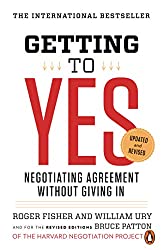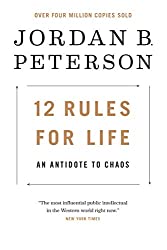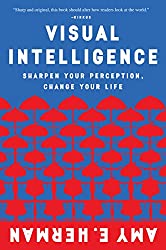Rating: 8.7/10. [WARNING: SPOILERS!] In this novel, a Chinese women, Shu Wen from Suzhou, travels to Tibet to search for her missing husband. This was in 1958, when the Chinese Communist Party annexed Tibet. On the way there, she picks up a Tibetan woman, Zhuoma. They get into some trouble in the mountains and meet…
All Book Reviews

Getting to Yes by Fisher, Ury, and Patton
Rating: 8.5/10. This book tells you how to negotiate more effectively. A common negotiating mistake is to use positional negotiation, which is each side picking an arbitrary position (eg: buy the car for $5000), and going back and forth until you’re tired and agree, or you both walk out. Positional negotiation is highly arbitrary, and…

Trump: A Graphic Biography by Ted Rall
Rating: 8.3/10. A biography of Trump in graphical novel format. This book was written after Trump won the republican primaries (May 2016) but before he won the presidency (Nov 2016). First, the book describes the political and economic circumstances that led to Trump coming into power. After the 2008 financial crisis, many low-skilled Americans felt…

Tao Te Ching (道德经) by Laozi
Rating: 8.5/10. Another major work of Chinese philosophy, forming the basis of Taoism, written in the 6th century BC (before Confucius). It’s fairly short, about 20 pages. In some ways it’s similar to Analects, which I read not too long ago, but there are some key differences. This is in some sense the eastern version…

12 Rules for Life by Jordan B. Peterson
Rating: 8.2/10. Jordan Peterson’s new book that quickly hit #1 on the bestsellers lists after being released this year. He’s famous around UofT for speaking out against social justice warriors, but [redacted] told me that he’s got a lot of interesting videos on philosophy of how to live your life. This book summarizes a lot…

Analects (论语) by Confucius
Rating: 8.5/10. The Analects (论语) is a book of philosophy by Confucius and lays down the groundwork for much of Chinese thinking for the next 2500 years. It’s the second book I’ve read in ancient Chinese literature after the Art of War. It’s written in a somewhat different style — it has 20 chapters of…

The Kingdom of This World by Alejo Carpentier
Rating: 4.0/10. Book about the Haitian revolution, originally written in Spanish and translated to English. Although the topic is interesting, the writing is confusing, uses too much unfamiliar vocabulary, and it was hard to follow what was going on. At least it was short, with less than 200 pages. I’m not sure why this has…

Pachinko by Min Jin Lee
Rating: 8.3/10. [WARNING: SPOILERS!] Pachinko is the name of the Japanese pinball game, where you watch metal balls tumble through a machine. It’s also the name of this novel, that traces a Korean family in Japan through four generations (Yangjin/Hoonie/Hansu -> Sunja/Isak -> Noa/Mozasu -> Solomon/Phoebe). Sunja is the first generation to immigrate to Japan…

Visual Intelligence by Amy Herman
Rating: 8.0/10. This book uses art to teach you to notice your surroundings more, which is very interesting. The basic premise is there’s a lot of things that we miss, but can be quite important. The two biggest ideas in this book for me: Train yourself to be more visually perceptive by looking at art,…

Memoirs of a Geisha by Arthur Golden
Rating: 8.1/10. [WARNING: SPOILERS!] This novel tells the story of the geisha Sayuri, from her childhood until her death. It pretends to be a real memoir, but it’s written by an American man. The facts are thoroughly researched, so we get a feel of what Kyoto was like before the war. Essentially, society in Japan…

Dying Words by Nicholas Evans
Rating: 8.0/10. There are over 6000 languages in the world, but many of them are endangered. Often, they structure their grammar in really weird ways, like keeping track of absolute directions instead of left/right, or needing to specify how one got some information. There are lots of reasons why studying and preserving endangered languages are…

Birth of a Theorem by Cedric Villani
Rating: 7.4/10. Memoir by Fields medalist Cedric Villani describing the process of discovering a mathematical proof. It’s inspiring that even for somebody as smart as him, math is difficult and he doesn’t always know what he’s doing. However, he does a poor job of explaining the math — his expositions are way too technical, aimed…

